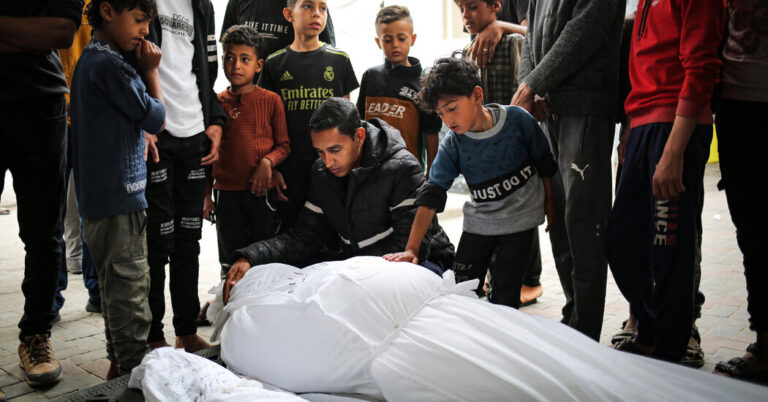Hamas said Saturday it was reviewing a new Israeli proposal for a ceasefire in the Gaza Strip, a move that comes amid efforts to break the deadlock in negotiations between the armed group and Israel .
The statement comes amid growing expectations of an Israeli invasion of Rafah, a town in southern Gaza where more than a million people have been displaced. Humanitarian groups have warned that such an offensive would have catastrophic consequences for civilians.
In a statement, Khalil al-Hayya, a senior Hamas official, said the group had received an Israeli response to a proposal it submitted to Egyptian and Qatari mediators two weeks ago. Mr. al-Hayya did not provide any details included in the Israeli proposal, but he said Hamas would respond to it once the group finished studying it.
On Friday, a delegation of Egyptian officials visited Israel to try to advance negotiations between Israel and Hamas, according to an Israeli official familiar with the visit, who spoke on condition of anonymity because they were not not authorized to communicate with the media.
In recent weeks, negotiations aimed at reaching a ceasefire and the release of hostages held in Gaza have stalled due to disputes over the withdrawal of Israeli forces and the duration of the cessation of fighting. Hamas demanded a permanent ceasefire, while Israel said it was open to a temporary pause.
Another key sticking point is whether Israel will allow displaced Palestinians to return to the north. Hamas officials have said Palestinians should be able to return en masse, while Israeli officials have said Israel wants to impose limits on who can return, where and how.
The standoff has left Palestinians in Gaza continuing to suffer from Israel’s bombing campaign, which has caused destruction across the territory and left more than 34,000 dead, according to Gaza’s health ministry. The ministry’s figures do not differentiate between combatants and civilians.
It has also prevented Israeli hostages from being reunited with their families, many of whom are increasingly critical of the Israeli government’s failure to secure the freedom of their loved ones.
Calls for ceasefire talks have become more urgent as Israel signals it may continue its invasion of Rafah. Earlier this week, an Israeli military official said that if Israel began to invade Rafah, an Israeli-designated “humanitarian zone” along the coast would be expanded to accommodate more civilians. He spoke on condition of anonymity to discuss internal deliberations.
The comments are one of the first indications of the Israeli military’s plans for civilians should it launch a major ground offensive in the region.
Secretary of State Antony J. Blinken is expected to visit Israel next week, a trip that would come as the United States has urged Israel not to undertake a major military operation in Rafah.
Israeli officials have repeatedly said it is necessary to enter Rafah to fight Hamas battalions there, but Israel’s allies have expressed serious concerns about the consequences of an invasion for the people who gathered in the city, many of whom live in makeshift tents in large encampments. .


